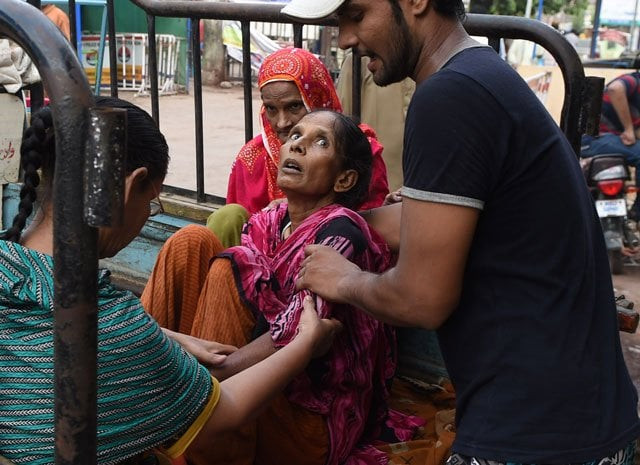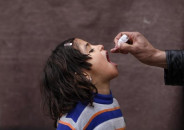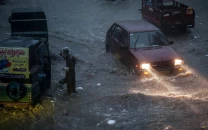A killing heat
Karachi is poorly-equipped to cope with extremes of meteorological events, from extreme rainfall to extreme heat

A man shifts a heatwave victim to a hospital in Karachi on June 22, 2015. PHOTO: AFP
Karachi is particularly poorly-equipped to cope with extremes of meteorological events, from extreme rainfall to extreme heat. It has a ramshackle infrastructure that means that there are frequent power outages, which means that there is often no electrically-powered cooling and in many areas there is little potable water, with the water-tanker mafias ensuring that the poorest pay the most to stay hydrated. Medical services are quickly inundated in mass-casualty events such as this. Many daily-wagers will be working through the heat of the day at the same time as they are fasting — with several fatalities as a direct result. Elsewhere and in rural parts of the country, the power is off for up to 18 hours a day and there is likely to be little immediate respite. The pre-monsoon rains may only be ‘moderate’ in Karachi, although parts of lower Punjab and upper Sindh are seeing predictive rainfall of up to 40mm on June 23-24. Pakistan is going to experience an increase in the number and severity of extreme weather events as global warming advances, and faster here than in some other parts of the world. A lot of people are going to die as a direct result — and our levels of preparedness are exposed as woefully inadequate.
Published in The Express Tribune, June 23rd, 2015.
Like Opinion & Editorial on Facebook, follow @ETOpEd on Twitter to receive all updates on all our daily pieces.



















COMMENTS
Comments are moderated and generally will be posted if they are on-topic and not abusive.
For more information, please see our Comments FAQ